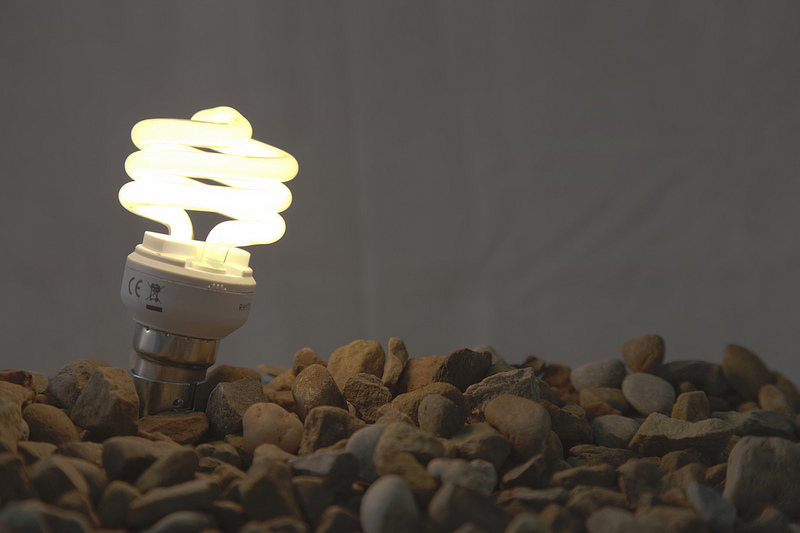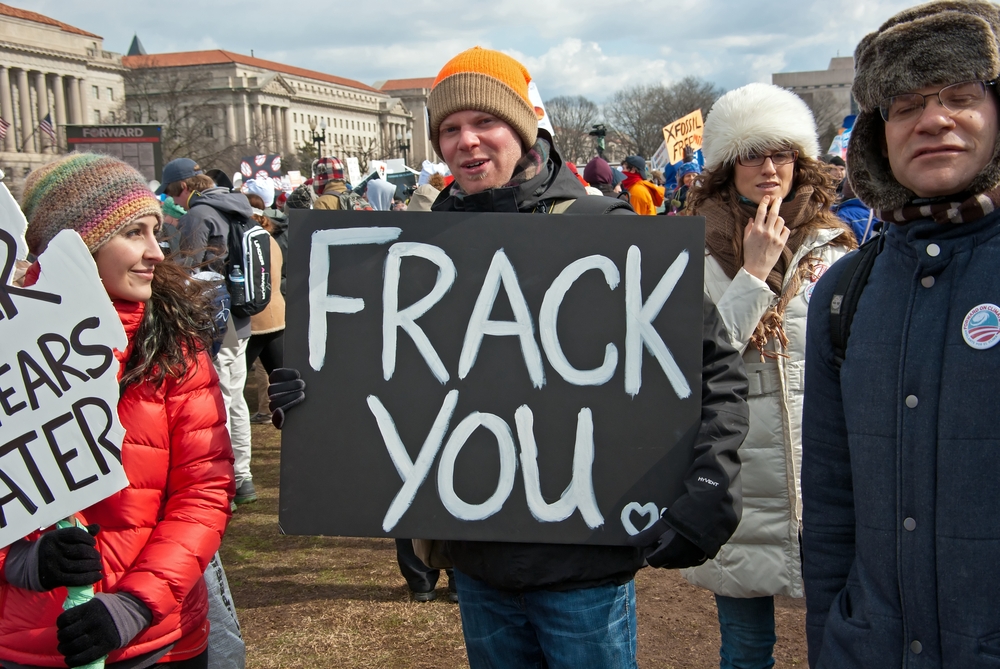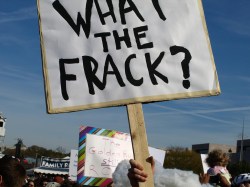Send your question to Umbra!
Q. Dear Umbra,
I informed a friend that fracking is harmful to the earth, can contaminate groundwater, and can cause deep structural imbalances that may result in increased seismological activity, i.e. earthquakes. He is employed in the industry and insists that this is not true. Furthermore, he justifies fracking by saying using natural gas for travel, etc., is better than traditional gasoline. He does not want to look at longer-term future alternatives and new methodologies. Can you help me to answer his defense?
Peter M.
Brantford, Ontario
A. Dearest Peter,
I’m afraid that arguing the merits of fracking with a friend who works in the industry is like suggesting to the ice cream man that fudgsicles are bad for your health. But I will offer a few pieces of information you can use in your conversations with him and with others in your life.
First, the basics. Fracking is a nickname for hydraulic fracturing. It is a process in which we enterprising humans pump special fluid — a potion made of water, sand, and mysterious chemical additives — deep into the ground, releasing natural gas and oil that is trapped in shale or sand. The gas was happy there. The rock layers were protecting it. But now it’s ours, all ours! Muahahaha.
We figured out how to frack back in the ’40s — not all that long before we figured out how to do the twist — but it’s still a surprisingly unfamiliar term to many people. In a survey conducted by Yale University last fall, nearly 40 percent of respondents had heard nothing about the technique, and 16 percent had heard only “a little” about it. I know not everyone cavorts in the bowels of energy issues the way we do at Grist, but if you haven’t heard of fracking, it’s time to start paying attention.
Fans of fracking cite the fact that natural gas is cheap, abundant, and relatively clean-burning. The booming industry makes people feel happy about energy independence, creates jobs, and boosts local economies — why, one pizza shop in South Dakota reportedly made $1 million after fracking came to town!
But there’s trouble in River City:
- Fracking can contaminate water. Just ask the people in Dimock, Penn., where methane from gas wells apparently contaminated household water. Or the people in Pavillion, Wyo., where drilling likely polluted the town’s aquifer. While this is a hotly contested topic, one thing is certain: Homeowners near fracking sites are reporting water that smells bad, tastes bad, and makes their families sick. Stay tuned.
- Fracking causes earthquakes. Or rather, the injection of wastewater from the fracking process into the ground causes earthquakes. It has caused earthquakes in Ohio, Oklahoma, Arkansas, Texas, and other places. Recent research suggests it also makes earthquakes more likely here when major quakes strike across the globe. Read this article. Or enjoy the animated GIF-ery of this one.
- Fracking pollutes the air and our bodies. A study by the Colorado School of Public Health found that air near fracking sites contained carcinogens including benzene, posing possible health risks to nearby residents. People near wells have indeed complained of headaches, nausea, nosebleeds, breathing issues, and memory loss, and a report from the Center for Environmental Health says proximity to the operations is particularly risky for pregnant women and young children. Want to know more? Here’s a painstakingly compiled list of more than 1,500 people who have publicly discussed the impact of fracking on their lives.
- Fracking finds nothing sacred. The industry is super-cool with drilling under parks, next to playgrounds, and in cemeteries. Are you cool with that? Because they are cool with that. Listen, do you want your energy independence or not?!
Peter, it would seem that your assertions are correct, and this list of fracking bans around the world indicates that you are far from alone in your concern. I am not convinced that your friend will change his mind, or that the fracking boom will go bust any time soon. But I do wish we would proceed with a bit more caution (not to mention investing half as much energy and excitement in renewable energy as we do in fossil fuels). After all, to quote my new favorite pragmatist, one Rick Van Schoik of the North American Center for Transborder Studies: “You can’t unfrack.”
Unfrackingly,
Umbra




